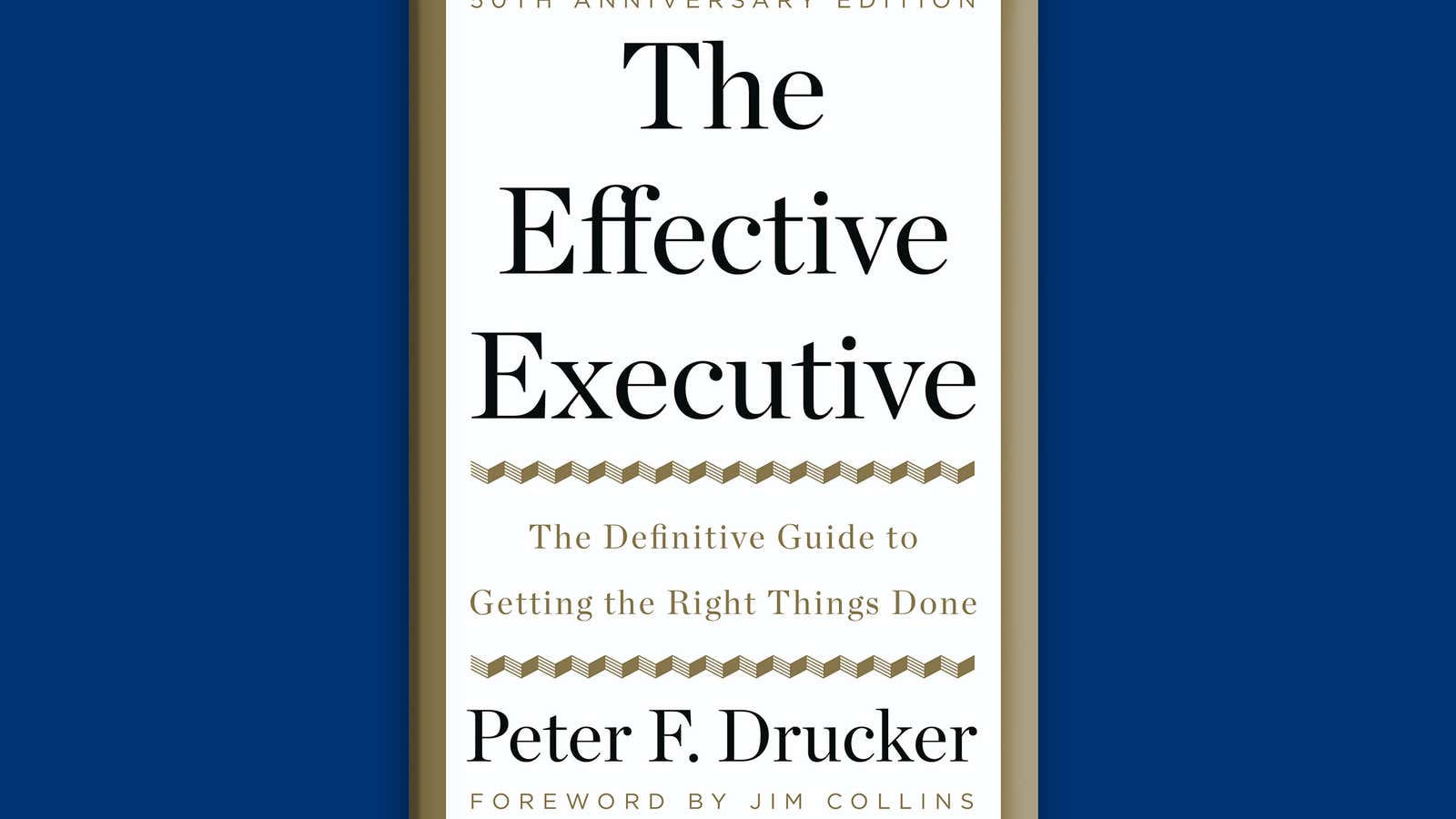Full title: The Effective Executive: The Definitive Guide to Getting the Right Things Done by Peter Drucker
Number of pages: 240
Who it’s for: Executives and anyone who thinks they might like to be an executive, as well as anyone who is managing others or dealing with their own time management issues.
The big idea: An executive’s job is to effectively make and implement decisions that will lead a company to a desired goal. The capacity to make these kinds of decisions involves learning a set of skills, or tools.
5 things worth learning:
- Time management: Most of us do not realize what we actually do with our time. Drucker recommends that we write down what we think we will do in the course of a day, and then keep a very detailed (every fifteen minutes) log of what we actually do that day. He suggests comparing the two lists so to see how we really spend time and make appropriate changes.
- Prioritize: Drucker says that it is a mistake to try to get the few “small” or “miscellaneous” chores out of the way before settling down to what is most important, because when we do that, we get distracted and never end up getting to the important things. He says do the important things first.
- Concentrate: In order to get the important things done, we need uninterrupted time to concentrate. Drucker suggests shutting off all outside communication for 75 minutes. While he was writing before the internet, email, and mobile phones existed, he would very likely tell us to shut down all of those and other technological interruptions during this block of time. According to him, few demands for our time cannot wait for 75 minutes.
- Know yourself: An effective executive knows her or his strengths and weaknesses—what we can do well, and what we do not do well. Drucker says not to pretend to yourself or anyone else that you are good at what you are not good at. In this same vein, he says, hire the strongest person for any job, but make sure that their strengths are in the area the job requires. Hire someone who can do the job, even if you feel competitive with her or him; and don’t try to squeeze someone into a job they cannot do.
- Strategize: concentrate on the important decisions. Don’t just solve an immediate problem—look at it in the context of the overall strategy and goals you are working toward.
Quote it: “Money is actually quite plentiful…people one can hire…but time is totally irreplaceable.
Read, skim, or skip? Read: Although dated—the book was written in a time when most executives were men, and before modern technology—many of the suggestions and recommendations are highly applicable to our more inclusive and highly technological world.
